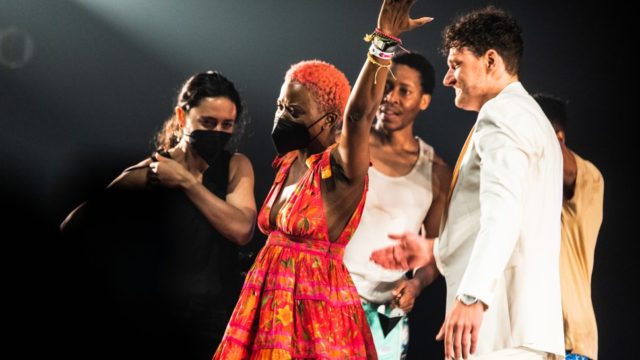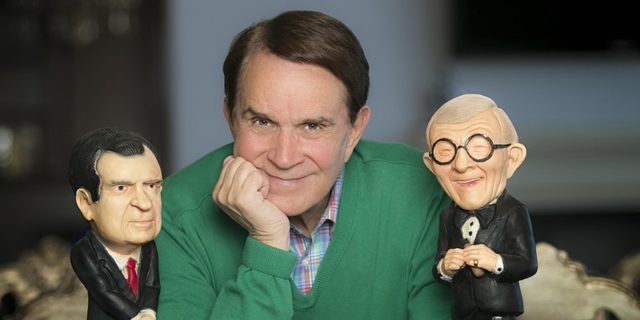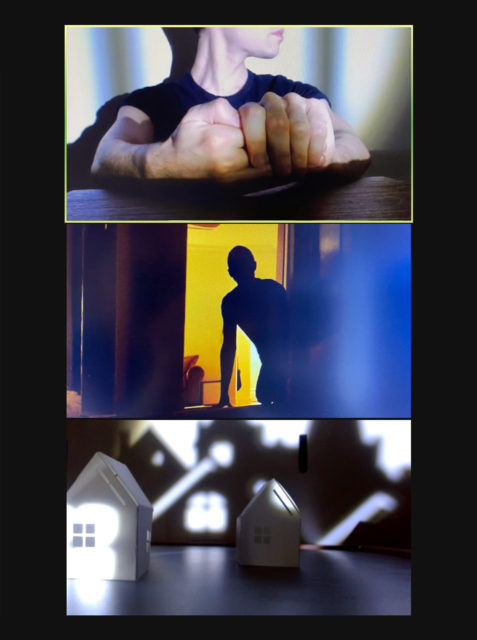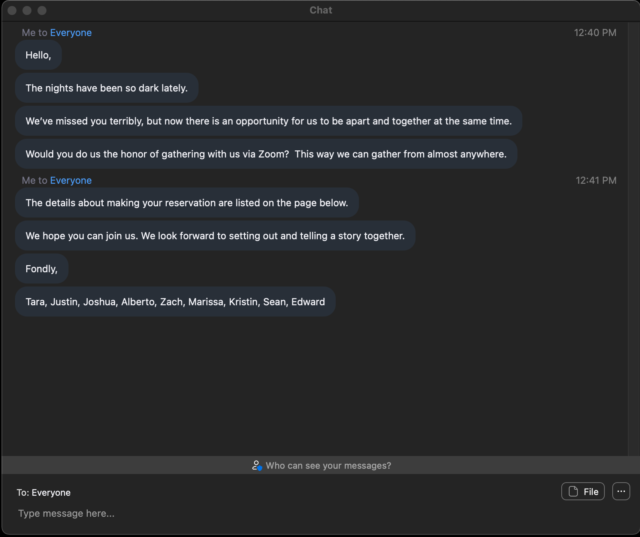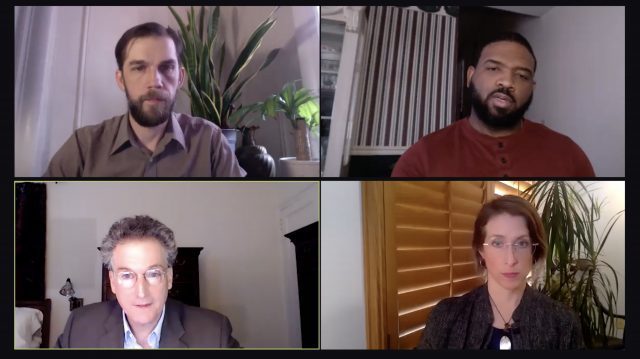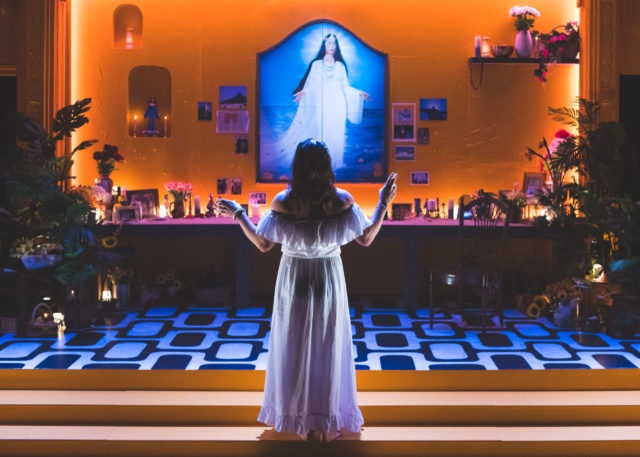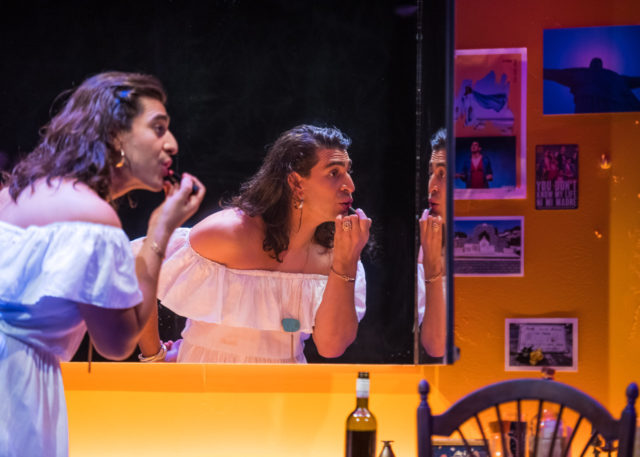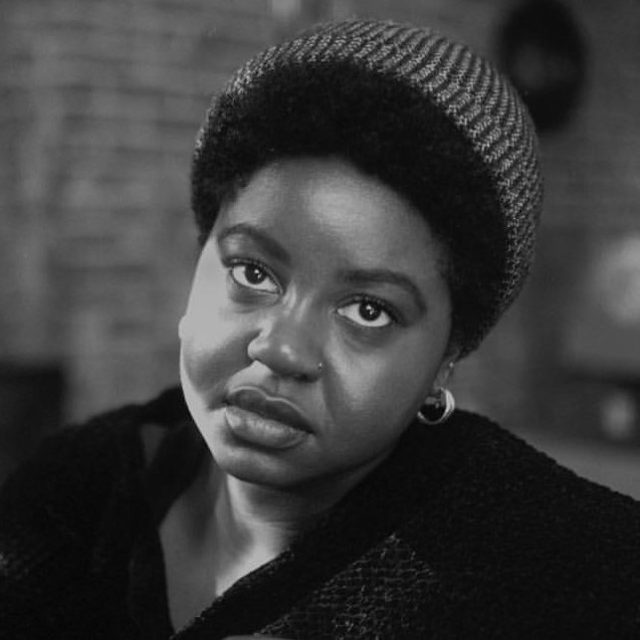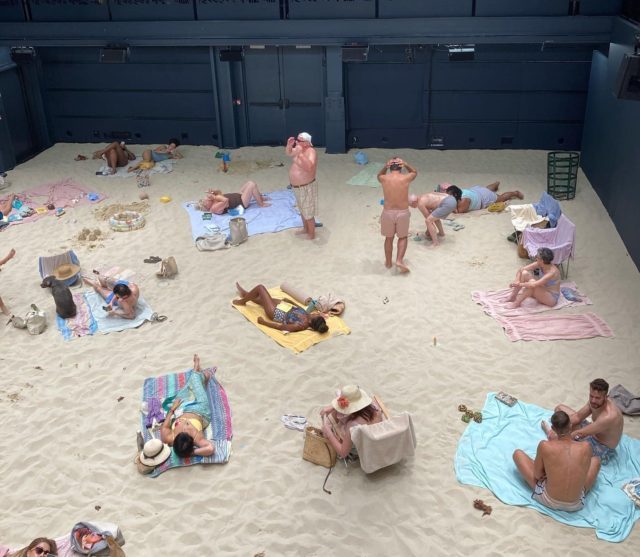
Sun & Sea brings the beach to BAM in thrilling production (photo by Barbara Pollack)
SUN & SEA (MARINA)
BAM Fisher, Fishman Space
321 Ashland Pl.
September 15-26, $25
www.bam.org
The summer beach season might unofficially come to a close on Labor Day weekend, but BAM has extended it through September 26 with the US premiere of Sun & Sea, a wonderfully engaging indoor presentation that brings fun in the sun to Fort Greene. Winner of the Golden Lion at the 2019 Venice Biennale, the hour-long opera takes place on the 57×46-square-foot floor of BAM Fisher, where twenty-one tons of sand have been trucked in from South Jersey and spread out two inches deep. One hundred audience members at a time watch the show from the balcony that surrounds the stage on all four sides; you can walk around to see it from numerous angles as thirteen vocalists and about two dozen locals sing about the environment, bananas, colonialism, the threat of drowning, exhaustion, running out of water, tourism, littering, work, and vacation.
The unnamed characters do what people on the beach generally do: eat, drink, read books and magazines, apply suntan lotion, talk with one another, snooze, and catch rays. Kids play badminton, two men battle it out in a friendly game of ring toss, people check their cell phones, and a dog (Beans or Grimaldi) wanders about while certain characters break into song as the action continues around them. Wealthy Mommy (Kalliopi Petrou) confesses, “What a relief that the Great Barrier Reef has a restaurant and hotel!” Her husband, Workaholic (Vytautas Pastarnokas), surmises, “Suppressed negativity finds a way out unexpectedly.”
The Philosopher (Claudia Graziadei) asks, “Is this not a parody of the Silk Road?” Complaining Lady (Eglė Paškevičienė) declares, “What’s wrong with people?” And one of the young men from the Volcano Couple (Marco Cisco and Lucas Lopes Pereira) opines, “Not a single climatologist predicted a scenario like this / Maybe someone had a feeling.” Hope is embodied by Chanson of Admiration (Nabila Dandara Vieira Santos), who gently conveys, “O la vida.”
Among the others chiming in on income inequality, lava, shrimp, 3D printers, the extinction of the mammoth, and the end of the world are Bossanova Woman (Svetlana Bagdonaitė) and Bossanova Man (Jonas Statkevičius), Dreamer (Artūras Miknaitis), Siren (Ieva Skorubskaitė), 3D Sisters (Auksė Dovydėnaitė and Saulė Dovydėnaitė), and two Choir Singers (Aliona Alymova and Evaldas Alekna). The singing is all matter-of-fact, as if the characters’ thoughts are calmly emerging, one no more urgent than another, set to a shimmering score, mixed live by Salomėja Petronytė, that glistens like sunlight on the ocean. Each audience member is given a printout of the libretto; I got a kick out of peeking at who was next and guessing who the performer would be. (I batted about fifty percent.) Photos are allowed (but not video), and you can stay as long as you want, as the performance repeats for five hours.
Commissioned for the Lithuanian Pavilion at the fifty-eighth Venice Biennale and featuring an all-female creative team, the ingenious Sun & Sea is the second collaboration between director and set designer Rugilė Barzdžiukaitė, librettist Vaiva Grainytė, and composer and musical director Lina Lapelytė, the Lithuanian trio’s follow-up to its 2013 show, Have a Good Day!, in which ten cashiers took on capitalism and consumption. It’s a seamless production, like a day at the beach; you can imagine yourself on the sand with the cast, hearing snippets of conversations here, admiring bathing suits there, wishing the kids wouldn’t run across your blanket, and turning over to get an even tan.
But as relaxed as you might feel, there is a rising tide of fear at the future of the planet if we remain on our current path. As the Vacationers’ Chorus intones, “Today they have raised the red and yellow flag up high / The whirlpools of the sea, / drop-offs / riptides / undertows. / You’re not allowed / to wade in / deeper than your knees!” If we don’t start doing something about our environment fast, there’ll be no more beaches or oceans for safe wading at all.

